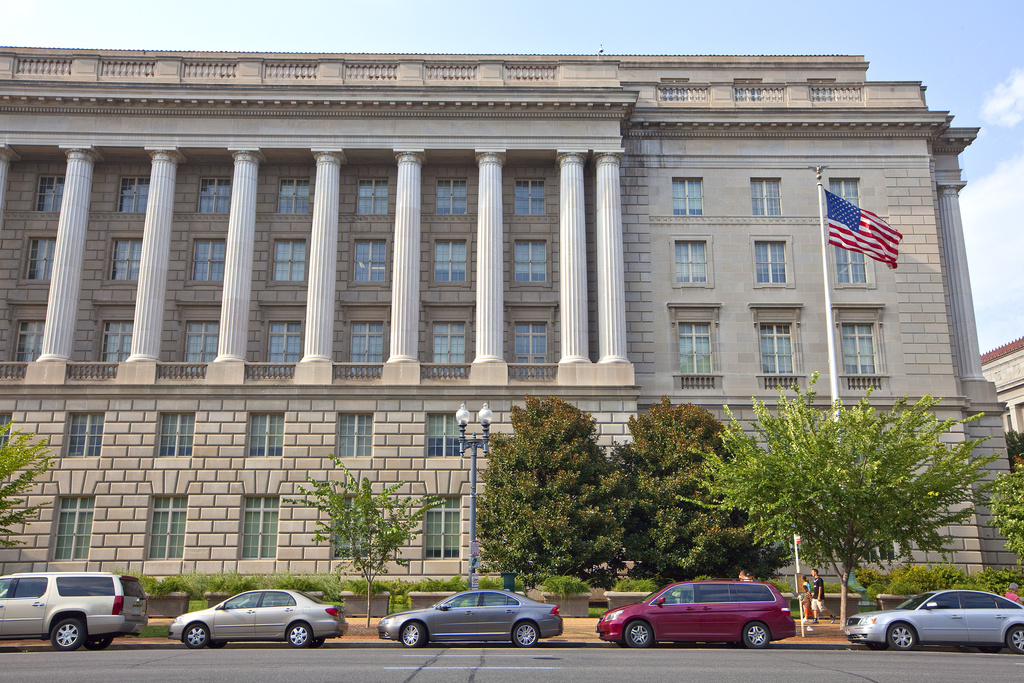Swiss in US angered by bank tactics

Swiss bank customers in the United States say they are being penalised following the tax evasion affair at UBS and the new banking regulations it gave rise to.
Since 2008, UBS and the other Swiss banks have been trying to get out of their business with customers abroad, especially in the US. Among these customers are Swiss citizens.
Last December, Emmely, the daughter of immigrants to Milwaukee who didn’t want to give her full name, received a letter from the Zurich Cantonal Bank indicating that following “new regulations relative to non-resident account holders”, the bank was facing “additional costs” which depositors would in future have to share. The bank was therefore charging SFr60 ($71.50) per trimester from July.
“There was only SFr2,470 on that account. It didn’t earn any money in interest. And then I’m asked to pay this!” said Emmely, adding she was both angry and sad.
“I feel sad because it was an account created for me by my parents, it was part of my heritage. I felt part of Switzerland having an account there, but now I have no more link with Switzerland, except for my citizenship and my family friends,” the pensioner said.
Flower fund
“I used the account to send flowers if there was a death in the family or among our friends in Switzerland, and when I travelled there, I would use it for some expenses instead of changing dollars,” she said.
“It seems odd to me that the Swiss government wants to encourage relations between the Swiss abroad and Switzerland, not only in voting but also in helping Switzerland in business and diplomacy matters, while Swiss banks are complicating our lives and creating more expenses for us.”
The Wisconsin resident closed her Zurich Cantonal Bank account “to avoid those outrageous fees”.
“When I go to Switzerland in September, I’ll have to use a credit card because it’s more expensive to buy Swiss francs here in the US,” she said.
Sense of betrayal
Hans Moser, who lives in Denton, North Carolina, had the same problem following his marriage to an American. Faced with very high costs imposed by the Zurich and Zug cantonal banks, he had to close his accounts.
“When we contact Swiss banks, we feel that for them we’re too small, but their representatives seem to do anything for the big boys,” said Moser, a Republican party local officer.
The Bern man, who has lived in the US since 1990, feels betrayed. “We stood up for the banks here during the Holocaust asset scandal and now we’re punished,” he said. “I’m ashamed of the Swiss banks and I don’t have a bit of trust in them.”
In Helvetia, Oregon, former racing driver Phil Henny says he is “very angry towards the Swiss banks, especially UBS, which by their illegal activities have turned the lives of thousands of Swiss citizens in the US upside down”.
Conditions attached
Henny, originally from Montagny near Yverdon, has been a customer of the Vaud cantonal bank BCV since 1957.
“The bank only kept me as a customer on condition that I never contact them about banking matters by telephone or email. So I receive no correspondence by post and I can’t write to them. I have to make all my transactions through an intermediary. This intermediary needed a telephone number and email address in Switzerland. I chose my brother. But I had to turn up in person in Lausanne in 2009 to sign the new forms,” Henny recalled.
The former champ points out that the repercussions of the new regulations have come at “just the wrong time” for depositors.
“This is precisely the time, with all the financial insecurity in the world, that we need to be able to keep in constant touch with our banks in Switzerland. I use my account for investments, and I need to give instructions to buy or sell. Now I can’t do that myself, which really is a hassle with the constant movements of the dollar and euro,” he explained.
Expatriates notified the Swiss consulates and the embassy in the US, but embassy spokesman Norbert Barlocher confirmed that “Switzerland cannot intervene”.
Embassy advice
“The Swiss banks are afraid now and don’t want to work with people in the US. The new regulations incur costs for them and of couse, the banks would like to pass these on to their customers. It’s not fair, but on the other hand, if you restrict the banks you reduce their ability to compete,” he added.
The Swiss embassy advises expats to change banks. This is what Moser did, closing his accounts with the cantonal banks and opening one with PostFinance, a business unit of Swiss Post.
Barlocher says some small regional banks are holding on to their customers in the US and are even accepting new ones.
But on the whole, the impression left by the banks and some of their rich customers persists.
“Customers who have had absolutely nothing to do with cheating or illegal investments by UBS are being made to pay,” Henny said.
The Swiss Bankers Association told swissinfo.ch that in the context of insecurity on the US market and the new regulations “it is up to each bank to analyse and decide for itself, on the basis of an analysis of cost, risk and opportunity, if it wants to retain or even develop its business relations with customers considered US persons. That is, Swiss expatriates considered American taxpayers by the US.”
The extra charges don’t just apply to account holders living in the US. They apply to every Swiss aged over 18 and not living in Switzerland or Liechtenstein.
The amounts vary from bank to bank. In 2010 Credit Suisse imposed charges of SFr40 a month. In 2011 Zurich Cantonal Bank asked SFr60 a month.
According to the Council of the Swiss Abroad, Swiss banks have also been closing accounts. It describes the banks’ attitude as “shameful”, but says it has no way of intervening.
(Translated from French by Morven McLean)

In compliance with the JTI standards
More: SWI swissinfo.ch certified by the Journalism Trust Initiative
















You can find an overview of ongoing debates with our journalists here . Please join us!
If you want to start a conversation about a topic raised in this article or want to report factual errors, email us at english@swissinfo.ch.